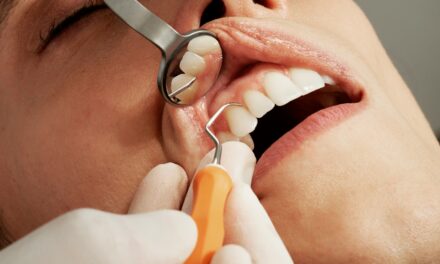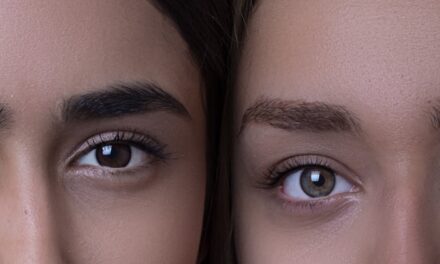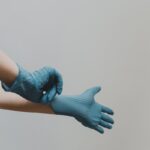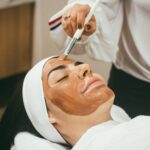New Research Uncovers Obesity Surgery Patients Wearing Wrong Bra
 The result of a first-of-its-kind study on bra-related health problems faced by women undergoing obesity surgery was presented by a leading consultant plastic and reconstructive surgeon at the British Obesity & Metabolic Surgery Society (BOMSS) annual meeting.
The result of a first-of-its-kind study on bra-related health problems faced by women undergoing obesity surgery was presented by a leading consultant plastic and reconstructive surgeon at the British Obesity & Metabolic Surgery Society (BOMSS) annual meeting.
Mr. Atul Khanna revealed that; whilst it’s known that four out of five (80%) women in general wear the wrong sized bra; all bariatric and post-bariatric patients (100%) in this study wore ill-fitting ones – with two-thirds (66%) suffering health problems such as debilitating back and neck aches and over half (54%) painful and persistent skin rashes.
The research also concludes that even with professional measuring in a clinical environment, traditional high-street bras still cannot fit breasts appropriately.
Titled “Should the Breast Fit the Bra, or the Bra Fit the Breast?” the study focuses on thirty-two women from bariatric support groups. Data was collected about age, bra size, bariatric and breast surgery, symptoms, and patients’ experiences with regards to bra-fitting.
In his presentation Mr Khanna has also coined the phrase ‘bra slide’, introducing to the scientific community relating to the migration of the inferior part of the bra on the chest wall due to the mismatch of cup diameter to breast base.
Mr Khanna discovered that even with professional bra measurements, traditional bras are still not fitting correctly, causing a variety of serious and long-term health problems.
Additionally, his findings show that over a third of the participants considering breast surgery would change their mind if they could simply find a supportive bra that alleviated their symptoms.
Accrding to Mr Khanna, a member of the British Association of Aesthetic Plastic Surgeons (BAAPS), it is well-known that the majority of women are wearing the wrong size bra.
“I have seen patients in my clinic for years with problems resulting from this. I was however shocked at the magnitude of the problem in bariatric patients: all of them were wearing the wrong size garment, four out of five (80%) wore bands that were too tight and nearly nine out of ten wore cups two sizes too small,” he explains.
“Ill-fitting bras cause a range of problems such as back and shoulder pain, even sores or welts resulting from uncomfortable straps and underwires digging into their skin – many seek breast reduction surgery as a last resort because there is nothing out there that can alleviate their suffering,” Mr Khanna says.
“Studies such as this prove categorically that the traditional bras – even in large cup sizes – simply do not conform anatomically to women’s bodies,” the surgeon concludes.
BOX OUT//
Highlights of the study:
- When measured, all participants were found to wear wrong fitting bras. Four out of five (80%) wore bands that were too tight with an average of 2 sizes too small. Nearly nine out of ten (84%) wore cups that were on average 2 sizes smaller than their calculated.
- Two thirds (66%) reported one or more symptoms related to breast volume or ill-fitted bra ranging from skin rash (54%), shoulder pain (42%) and neck pain (29%).
- 70% of participants had at least one professional bra fitting in the past. Inconsistency in sizes for the same brands and shops were experienced by 67%, and between different brands or shops by nearly nine out of ten (88%) of them. Four out of five (79%) reported that they often or always need to try different sizes to find a suitable one.
- Participants reported common patterns of problems with bra designs such as too narrow straps and sliding of the lower edge of bra (‘bra slide’)
- Physical symptoms were the most likely reason for wanting breast reduction surgery
- Well over a third (36%) of the patients considering breast surgery would change their minds if offered well supporting bra to solve their symptoms. However, none of the participants were offered professional bra fitting as part of their obesity surgery care.
(Note: A total of 32 participants answered the survey and 29 were measured)
FLOATING QUOTE//
“This study cements the research which I have been working on for the last ten years, on the back of which I have recently co-created a new system called Optifit which is based on three measurements to define frame, depth and volume..” Mr Atul Khanna, Plastic Surgeon
Focusing on the astonishing finding that 100% of participants were wearing the wrong-sized bra, Mr Khanna honed his research.
“After conducting further analysis it was discovered that even after selecting bras according to appropriate measurement, the garments were still 18% shorter than the cup-to-breast wall ratios should be. So even after exhaustive calculations by in a clinical environment, we concluded that no traditional bra can fit the breast shape in this group appropriately,” Mr Khanna explains
“What is out there in the shops for the female public is simply not fit for purpose. In fact I question whether any woman has ever existed, whose measurements conform to many of the large bras currently available,” he concludes.
Mr Khanna, a substantive NHS Consultant at Sandwell and West Birmingham NHS Trust, admitted the breast is actually one of the hardest organs to assess objectively.
“It varies in volume, width, height, projection, tissue density, composition, shape and position on the chest. As a plastic surgeon, I have to take a wide range of measurements to ensure satisfactory outcomes, whether for reduction surgery, reconstruction or aesthetic enlargement,” the expert says.
“This study cements the research which I have been working on for the last ten years, on the back of which I have recently co-created a new system called Optifit which is based on three measurements to define frame, depth and volume, rather than the traditional and outdated two used over the last hundred years,” he reveals.
“Surgery and medicine has come far in this period, it’s time for the fashion industry to move with the times,” he finishes.
For more information please visit www.atulkhanna.co.uk
BOX OUT//
About Optifit
Optifit was launched by experienced bra fitter Sue McDonald, who regularly advises pregnant, breastfeeding, physiotherapy and post-mastectomy patients on breast health, in conjunction with top consultant plastic surgeon Atul Khanna who works both on the NHS and privately.
Optifit bras can be ordered via the website (www.optifitbracompany.com) or by calling 01457 810628.


















